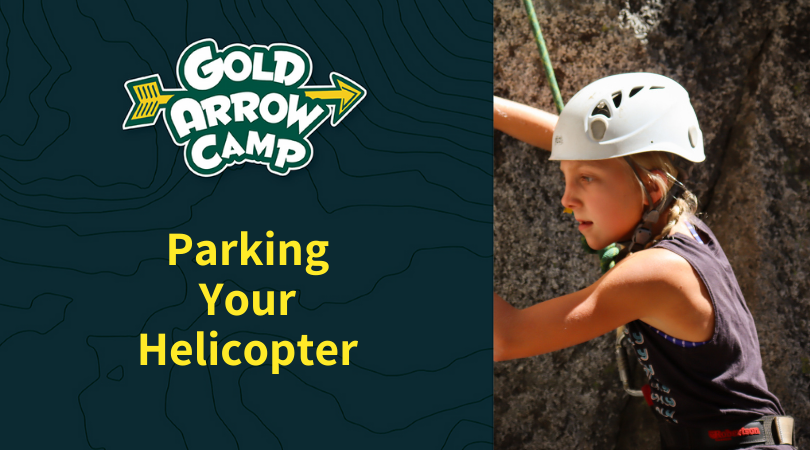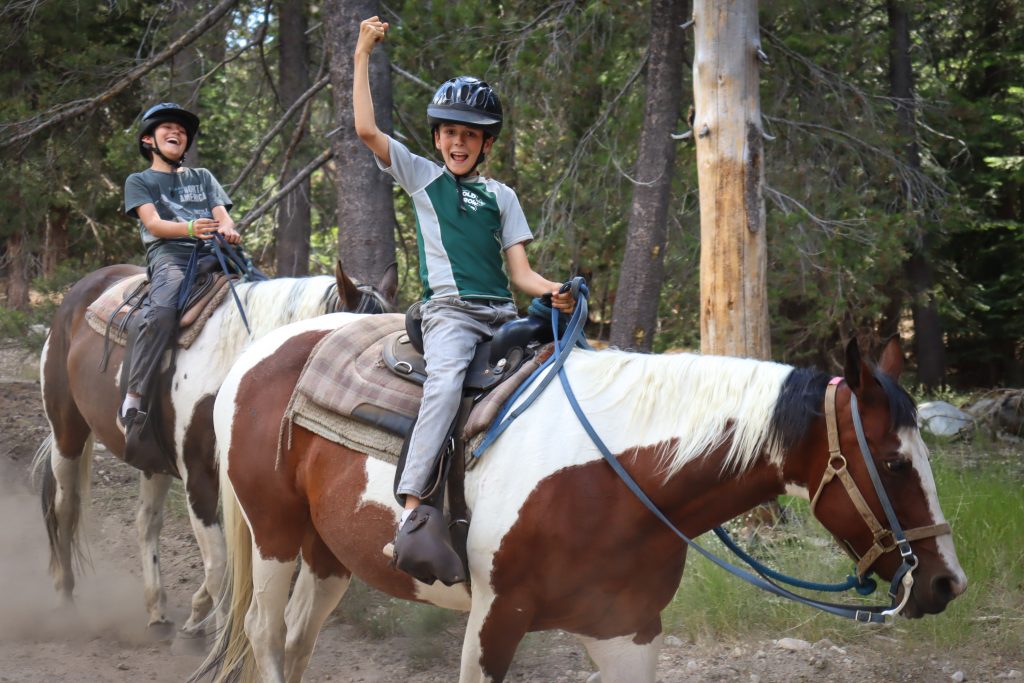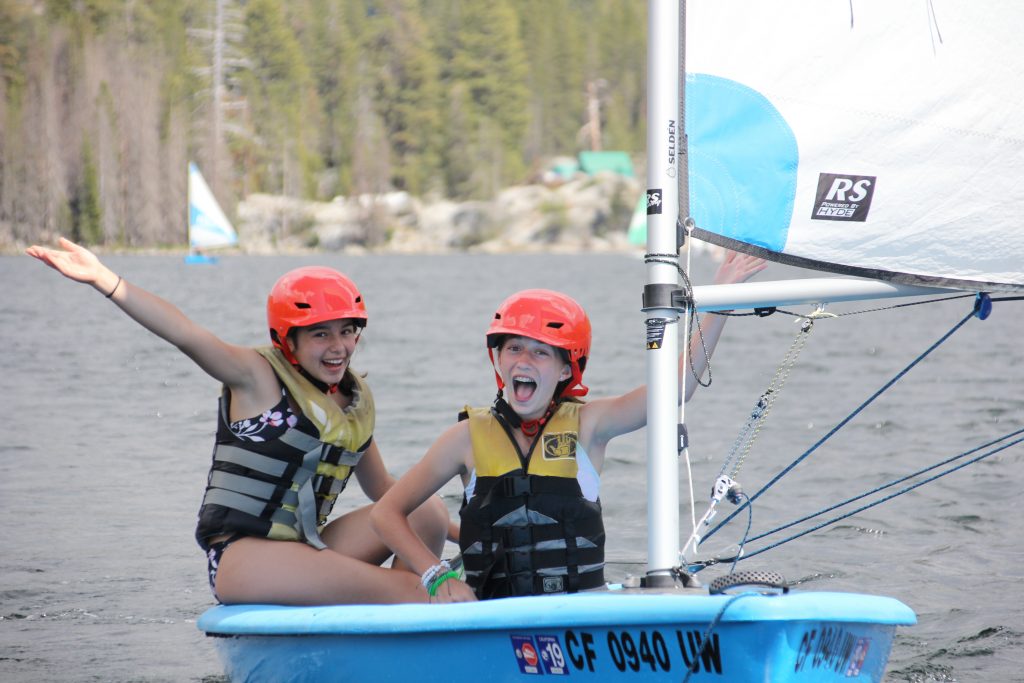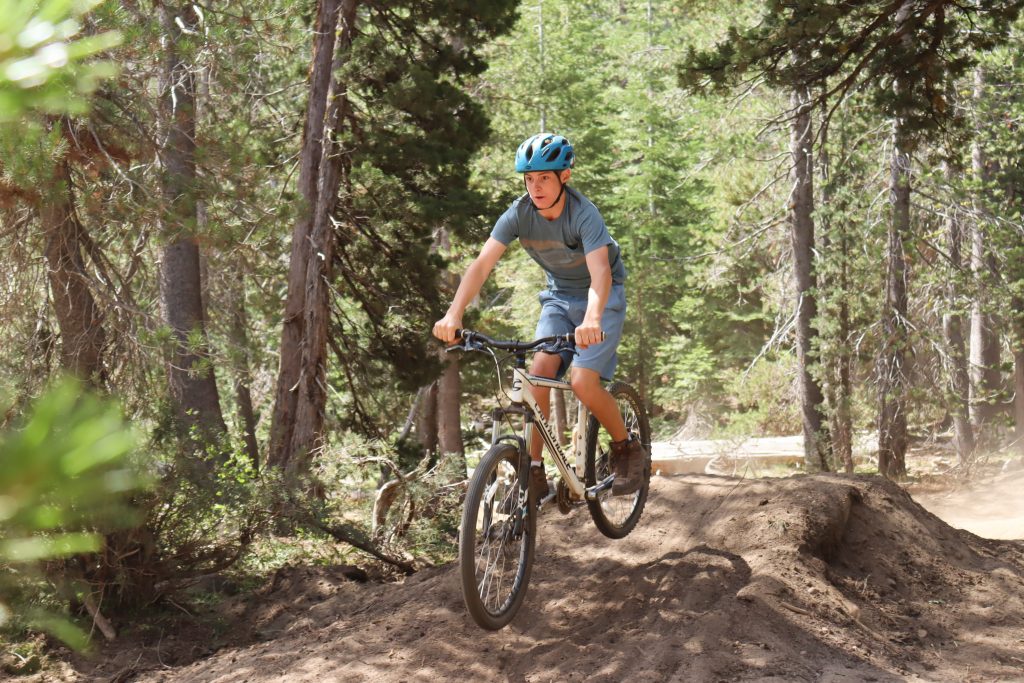
Research Finds Children Learn Social Skills At Camp
A few years ago, I conducted research on the impact camp experiences have on children’s social skills and happiness. This research was through the California State University, Fresno for my master’s degree thesis entitled, “The Perceived Impact of Camp Experiences on Youth Social Skills and Subjective Well-Being.”
“Friendship is the gold of childhood”
Michael Thompson, Ph.D.
Children and adolescents require more than intellectual growth and physical health to become happy, successful adults. They also need to develop the social skills necessary for positive relationships with others (Crosnoe, 2000). The importance of quality childhood friendships for well-being both during childhood and later in life has been clearly established, and many camp programs specifically focus on fostering those friendships, along with teaching, modeling, and practicing social skills.
Campers look like they’re having a lot of fun playing outdoors and learning new activities, but are they also learning life skills during just two weeks at a residential summer camp? That was one of the primary questions of this study, which examined the perceived impact of a two-week residential camp experience on children’s happiness and social skills development. Participants were 167 children ages 6-15 from six different two-week, residential summer camps in Arizona, California, and Colorado. The children completed an end-of-camp written survey during the summer of 2014 in which they were asked to rate (1-5) how much they thought their social skills were impacted by their camp stay. Did their social skills, for example, get a lot worse (1) or a lot better (5)?
Participants’ parents went on-line to complete the same survey two to four weeks after their child’s camp stay. Both children and parents reported significant positive changes in the children’s social skills and happiness as a result of their two-week camp experience, and 140 of 147 (95%) children reported improvement in their overall social skills.
Social Skills Improvement
| Social Skill | % of Campers Reporting Improvement | Mean Answer |
| Choose people who would be good to be friends with. | 64% (107 out of 156) | 3.91 |
| Get to know more things about my friends. | 74% (123 out of 155) | 4.18 |
| Enjoy being with my friends. | 69% (115 out of 157) | 4.17 |
| Help my friends have a good time when they are with me. | 64% (107 out of 157) | 4.03 |
| Find ways to meet people I want to be friends with. | 65% (108 out of 157) | 4.06 |
| Get to know people who I might want to become friends with. | 73% (122 out of 157) | 4.10 |
| Listen carefully to things that my friends tell me. | 60% (100 out of 156) | 3.94 |
| Understand my friends’ emotions. | 62% (103 out of 157) | 4.01 |
Focus on Friendship
Camp counselors, unlike teachers, view their primary role as one of facilitating friendships and positive experiences. They are also trained to help campers build social skills. At most camp programs, counselors participate in up to a week of training prior to the summer. Sessions include exercises in communication, leadership, and team building, during which counselors are trained to lead “ice-breakers” that help campers get to know one another and connect. Making friends is an important part of the camp experience, and with the help of their counselors, children learn and practice their friend-making skills. Given that camp programs emphasize forming new friendships and rekindling old friendships, the finding that children felt their social skills improved as a result of camp supports the hypothesis of this study and anecdotal testimonials. Not surprisingly, all campers (100%) reported making new friends at camp, with 99% of campers’ parents (132/133) reporting the same.
How many new friends did you make at camp?
| Number of New Friends | % of campers |
| 0 | 0% |
| 1-3 friends | 14% |
| 4-6 friends | 14% |
| 7-9 friends | 19% |
| 10 or more friends | 44% |
Note: 10 children (6%) did not answer the question.
How do camp experiences foster friendships and develop campers’ social skills?
While the specific mechanisms for social skills development were not part of this study, campers’ comments provide some clues as to why camp experiences help foster close friendships and improved social skills.
-
Sense of belonging and social acceptance, understanding their value to the camp community:
“I’m not exaggerating, camp is my favorite place on Earth. The people provide a sense of belonging and ‘welcomeness.’ I’ll be back next year!”
“I liked the freedom you are provided with and how many new friends you can make within two weeks!”
“Camp is really fun. It’s usually hard to make friends, but here it’s easy.”
“I liked bonding with my horse, my friends, and the counselors.”
“Camp is really fun and it’s usually hard to make friends, but here it’s easy.”
“I get to make new friends and grow better friendships with existing friends.”
-
Opportunity to practice skills like cooperation, altruism, and empathy:
“What I like best about camp is creating connections and having a new home.”
“What I like best about camp is hanging out with my friends.”
“Camp helps me come out of my shell.”
“It’s fun and I get to play with my friends.”
-
Improved ability to label emotions in facial expressions, more time in face-to-face communication (no screens!):
“I want to come back to camp to get away from electronics, and I really like this experience.”
“I liked that there are no electronics, like a cleanse.”
-
Opportunity to practice their conversation skills at meals, activities, around the campfire, during rest time and while walking around camp:
“I loved doing activities with my cabin group and just talking to them.”
“The best thing about camp is the bonding time you spend with your cabin mates.”
-
Meeting new people:
“I love camp and getting outdoors and meeting new people from places all over the world.”
“I loved all of the wonderful counselors and the friends I made.”
Children who live together in close quarters, share activity and meal times, and gather around campfires in discussion and games get an intense burst of time with one another and often report feeling closer to their friends at camp—with whom they spend only two weeks—than to their school friends. Because they are with each other so much and—at the six camps of focus in this study—are required to unplug from electronics, children at summer camp spend more time in intentional, directed conversation as compared to when they are not at camp. Trained counselors lead campers through team- and relationship-building activities throughout the day, skills that are more deeply developed thanks to increased face-to-face communication.
At camp, children are socializing with one another from the moment they wake up until the minute they fall asleep. They have time to internalize group social norms and learn appropriate social interactions by emulating counselors and fellow campers. For a child who has grown up in the same neighborhood or gone to the same school their whole life, camp may be the first opportunity to meet such a large number of new friends and interact with a diverse group of people. Campers get practice talking to new people, figuring out appropriate self-disclosure, and asking questions to get to know others. It’s no surprise that campers and parents believe camp improves social skills. Those two weeks each summer spent at camp may, indeed, be life changing. And new friends and improved social skills may be the reason!

REFERENCES
Crosnoe, R. (2000). Friendships in childhood and adolescence: The life course and new directions. Social Psychology Quarterly, 63(4), 377-391. doi: 10.2307/2695847



 Originally published on
Originally published on 
